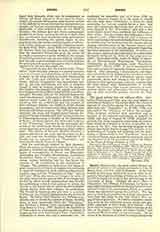

Emser, HIERONYMUS, the most ardent literary opponent of Luther, b. of a prominent family at Ulm, March 20, 1477; d. November 8, 1527 at Dresden. At the University of Tübingen, whither he went in 1493, he acquired a thorough knowledge of Greek and Latin, but in 1497 he began the study of law and theology at the University of Basle. Through the good offices of Christopher, later Bishop of Utenheim, he barely escaped imprisonment at Basle for having inscribed some satirical verses of his countryman, Bebel, in a volume which was circulated among the students. The legate, Cardinal Raymond Peraudi of Gurk, who seems to have been the judge in this trial, shortly after engaged him as secretary. In 1500 he published a mediocre work on the miraculous crosses which were generally supposed to have fallen from heaven. Four years later he began a series of brilliant lectures at Erfurt on Reuchlin’s “Sergius vel Caput Capitis” and numbered Martin Luther among his hearers. On account of his triumphs at Erfurt he always claimed the distinction of having been one of the pioneers of classical humanism in Germany. Despite his renown and brilliant manner of teaching, Eraser’s lectures at Leipzig on the classics, in 1505, aroused little admiration. Disgusted at his failure he turned to the study of theology and won the degree of bachelor. George of Saxony befriended him in a financial way during these and subsequent years. Dissatisfied with the methods of teaching theology then prevalent, Emser applied himself earnestly to canon law, and on the completion of his studies served George of Saxony as secretary. At the request of the latter he composed a Latin ode in honor of St. Benno of Meissen, who had just been canonized. This canonization was largely due to the efforts of Emser at Rome, whither he went in 1510 at the express wish of George of Saxony, who saw in this solemn act a source of glory for his realm. The life of the new saint, which Emser wrote in faultless Latin on his return in 1512, is worthless from a critical point of view.
About this time Emser received Holy orders and two prebends at Dresden and Meissen. While preaching by command of George of Dresden, he became better acquainted with Luther. Emser admired the fiery Augustinian; Luther, the accomplished littérateur. But in 1519 they parted. At the disputation in Leipzig, Luther, to the express dissatisfaction of George of Saxony, who was present with Emser, gave utterance to Hussite opinions of a radical sort regarding the pope. Emser was deeply pained at this; and on learning that the Bohemians, in two semi-public letters, hailed a second Hus in Luther, he declared in a letter to John Zack that Luther had reprimanded the Bohemians for their attitude towards the pope, and had upheld the papal supremacy as a necessary means to prevent division. Emser added a very lucid explanation based on Scripture in proof of the primacy, and in a subjoined poem dealt a severe blow to the calumnies against the pope. Luther soon learned the contents of this letter and, regarding it as an attempt to discredit him among the Bohemians, replied in his “Ad aegocerotem Emseranum M. Luther additio”, where abuse of all kind was heaped upon the Church. Emser answered with an equally violent though not scurrilous work: “A venatione lutheriana egocerotis Assertio”, in which he portrayed the certain scandal arising from the words and conduct of a refractory monk. He defended the Scriptures in a very personal way against the arbitrary interpretation of Luther. The letter closes with a history of his life, which was intended to offset the aspersions cast on his probity by his opponent. Luther replied by burning at Wittenberg this letter and other writings of Emser, together with the Bull of excommunication and the “Corpus juris canonici” (December 10, 1520). This insult did not provoke Emser. But as Luther displayed an incredible literary activity in 1520, Emser wrote eight polemical works in 1520 and 1521 which abound in personalities and invective, yet defend the Faith in a masterly way and clearly point out the logical results of the new teaching. In 1522 he translated the address which the Englishman, John Clark, delivered on handing over to Pope Leo X the book written by Henry VIII against Luther. (O’Donovan, The Defense of the Seven Sacraments by Henry VIII, New York, 1908, pp. 110-17.) Among other works may be mentioned his German translation of the New Testament with a laudatory preface by George of Saxony. Emser showed in this work the liberties taken by Luther with the Scriptures and refuted his errors.
THOS. M. SCHWERTNER

